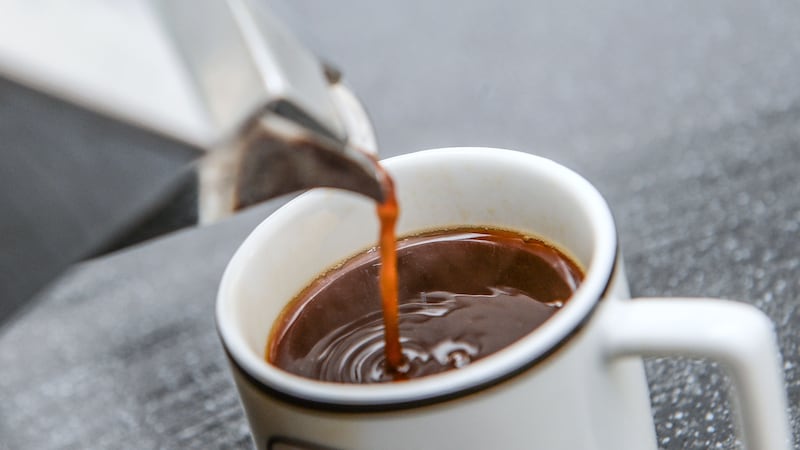Habitual coffee drinkers become better at sniffing the beverage out the more they crave a cup of it, new research has found.
Scientists also discovered that regular coffee drinkers are more sensitive to its aroma than non-coffee drinkers and are faster at recognising its smell, according to the study, published in Experimental and Clinical Psychopharmacology.
Dr Lorenzo Stafford, an olfactory expert in the Department of Psychology at the University of Portsmouth, said: “We found the higher the caffeine use, the quicker a person recognised the odour of coffee.
“We also found that those higher caffeine users were able to detect the odour of a heavily diluted coffee chemical at much lower concentrations, and this ability increased with their level of craving.
“So, the more they desired caffeine, the better their sense of smell for coffee.
“We have known for sometime that drug cues (for example, the smell of alcohol) can trigger craving in users, but here we show with a mildly addictive drug, that craving might be linked to an increased ability to detect that substance.
“Caffeine is the most widely consumed psychoactive drug and these findings suggest that changes in the ability to detect smells could be a useful index of drug dependency.”
A university spokeswoman said: “It is the first time evidence has been found to prove coffee addicts are more sensitive to the smell of coffee.
“The results could open the door to potential new ways of using aversion therapy to treat people addicted to substances with a distinct smell, such as tobacco and cannabis.”
The study involved blindfolded participants being asked to differentiate between very small amounts of coffee odour, items that had no odour, oil of lavender and another non-food odour.
Dr Stafford said that the more caffeine a person usually consumed, the stronger their craving for coffee.
He added: “More interestingly, higher craving, specifically that which measured the ability of caffeine to reverse withdrawal symptoms such as fatigue, was related to greater sensitivity in the odour detection test.”








